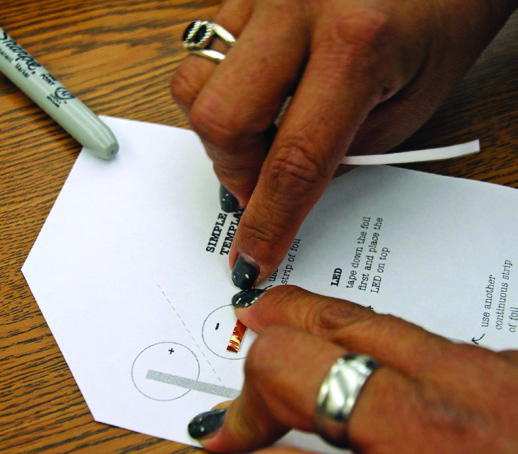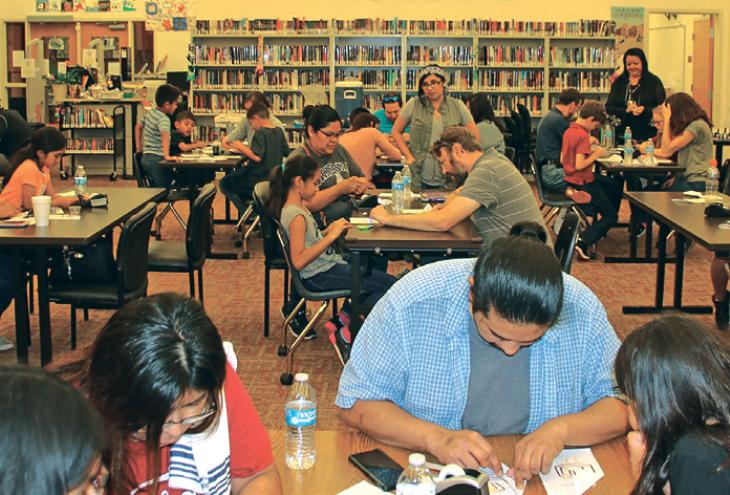Nationwide, there’s a call to broaden participation in computer science — with good reason. The lag in computer science knowledge is especially critical in rural America, where even many blue-collar jobs now require substantial computer skills. Native Americans in rural communities are far less likely than their peers to have access to advanced STEM courses. What’s more, they often lack access to a reliable internet connection outside school.
More significant than the gap in participation in computer science and a lack of access may be the so-called identity gap experienced by Native American and other non-dominant students in STEM fields. In other words, Native students often don’t see themselves in STEM. So in addition to providing access to computer science learning, there also needs to be an integration of materials and relevancy of practice as a jumping-off point where people are familiar with the tools and concepts addressed.
To be part of the solution, leaders of a recent Circuits Family Discovery Night at the library of the Ak-Chin Indian Community in southern Arizona took a risk. Although they were new to working with computer science, the Ak-Chin librarians had learned about making wearable, programmable electronics — also known as e-textiles — at a free workshop held in conjunction with the AISES Leadership Summit in Viejas, Calif., co-hosted by the National Center for Women & Information Technology (NCWIT).
Everyone learned to create a simple circuit, parallel circuit, and paper switch circuit.
The workshop was open to educators who serve Native American students, and the majority of the attendees had almost no prior experience with computer science and e-textiles. They were motivated to sign up for the workshop “to bring new experiences and STEM opportunities for their students.”

Discovery Night held at the
Ak-Chin Indian Community library
in southern Arizona received a
hands-on lesson in computer
science.
The workshop included a hands-on activity of personalizing name cards followed by a discussion about the importance of computer science for their communities and how to make it matter and build student confidence and community. The participants then created a personalized light-up wristband or pouch. Everyone was provided with enough supplies to bring back to their students. All the educators were so inspired and excited that they followed up to ask for more examples and curriculums.
The power of e-textiles is that it allows participants to bring in their own creative and cultural ideas and provides opportunities for people to assist each other through technical difficulties. Similar to coding, there is trial and error in e-textiles, but it is not dependent on Wi-Fi and provides a hands-on experience to stimulate curiosity and the desire to learn more.
Melanie Toledo, the Ak-Chin librarian, says, “We had a family board game night planned, but when I came back from the workshop, we decided to show families what we learned. We’d be teaching parents (the buy-in part) so that they will drop off their kids, especially the girls, when they sign up for our other STEAM [science, technology, engineering, art, and math] programs.”
The Ak-Chin Library Circuits Family Discovery Night fulfilled the leaders’ hope that trying something different would build confidence and community. Everyone learned to create a simple circuit, parallel circuit, and paper switch circuit using copper wire, small LEDs, and batteries. For each circuit, they watched a video to learn the relevant process before beginning. The adults were just as excited as the youth during the event. According to Toledo, the experience of attending the workshop and hosting the family circuits night “set a much-needed spark,” and they are energized and excited to do more.













